NEWSLETTER
The new semester is starting soon!

The new semester is starting soon!
Welcome to the CTL and LLC newsletter at the start of the semester!
Today's newsletter is all about the new semester. We present the new course program of the LLC (Center for Languages, Learning and Culture). The Brickfield accessibility Moodle plugin has been installed. In addition, the Moodle course “Accessibility in Teaching Materials” is in the starting blocks.
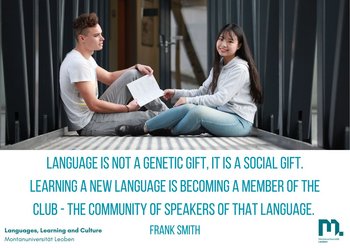
LLC Programm Winter 2025/26
We are a place of lifelong learning — we don’t just talk about intercultural exchange, we live it.
With the start of the semester, our new language and skills courses are now open to you as students and staff. Developing your language skills and transversal competences is not only a valuable way to tackle academic and professional challenges — it also enriches your personal development.
You can find our seminars on teaching and learning on MU Online under Continuing Education.
Accessibility Toolkit for Moodle
The Brickfield toolkit helps make Moodle courses more accessible. To do this, click on MORE/Accessibility Toolkit/submit for analysis.
More / Accessibility Toolkit
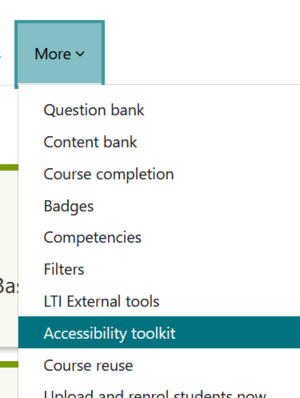
Submit for analysis
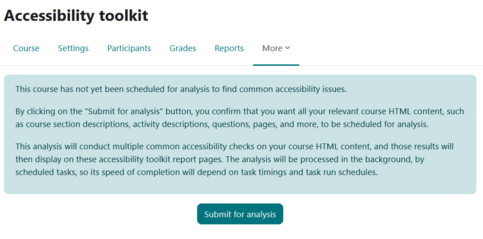
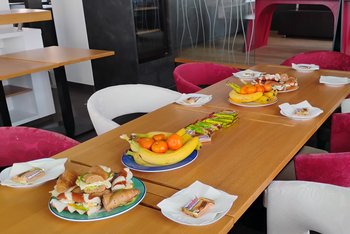
Teaching Brunch
The Teaching Brunch took place on September 29th and focused on group work. It provides a space to address all topics related to teaching and discuss them with other instructors. After consulting with the participants, the event also addresses specific topics, such as group work this time. This allows participants to address challenges in their own teaching and find new approaches together. At the same time, cold snacks are provided to satisfy hunger pangs.
The next Teaching Brunch is planned for November. Registration will soon be available at MUonline/Events. An announcement will follow.
Accessibility in teaching materials
New Moodlecourse for teachers.
Accessible teaching materials ensure that all students can participate equally in their studies, regardless of their individual circumstances. This includes clear structures, easily legible fonts, high-contrast displays, and the provision of alternative formats such as screen reader-compatible PDFs. Audiovisual content should include subtitles or transcripts. The use of simple and understandable language can also facilitate access. In this way, inclusion is actively promoted in everyday university life. With its Moodle course for accessible teaching material, the CTL provides important support in the area of accessible teaching materials.
MUL-Service Diversitymanagement:
https://diversitaet.unileoben.ac.at/
https://www.unileoben.ac.at/universitaet/administration/stabsfunktionen/diversity-management/
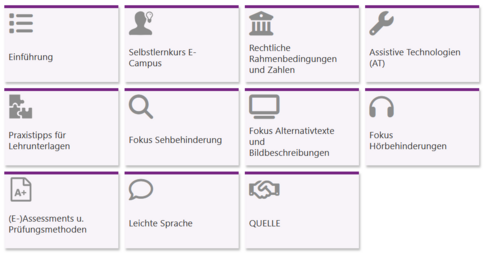
Upcoming events
| Event | Date | More Infos |
|---|---|---|
| Teaching and Learning STEM in Higher Education | from 8.10. | Registration on MUOnline |
Climate fresk, Circular Economy Puzzle | 22.10. and 16.12.; 10-13 Uhr | Registration on MUOnline |
For interested colleagues
You are also welcome to forward our newsletter to interested colleagues
or provide the subscription link directly: Subscribe to the CTL newsletter
It is possible to subscribe to the newsletter with an external e-mail address.
Please send an email to: sympa(at)lists.unileoben.ac.at with the subject:
subscribe ctl-newsletter First name Last name
Thank you very much!
You can find us here!

Peter-Tunner-Strasse 15/2.OG rechts
A-8700 Leoben
E-Mail: ctl(at)unileoben.ac.at
www.unileoben.ac.at/ctl
_________________________________
Languages, Learning and Culture
- Academic and Professional Development
Peter-Tunner-Strasse 15/1.OG
A-8700 Leoben
https://zsbk.unileoben.ac.at/